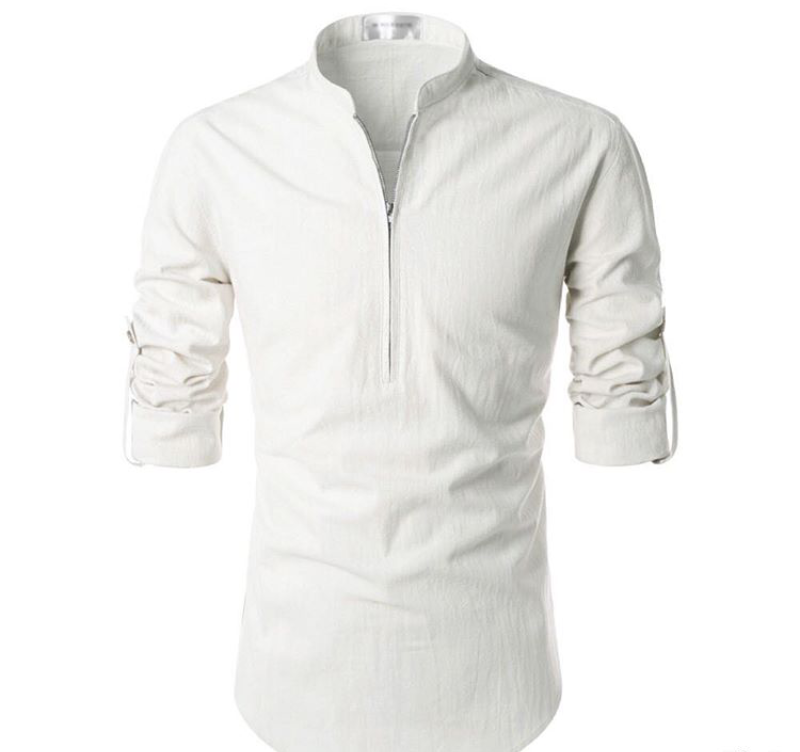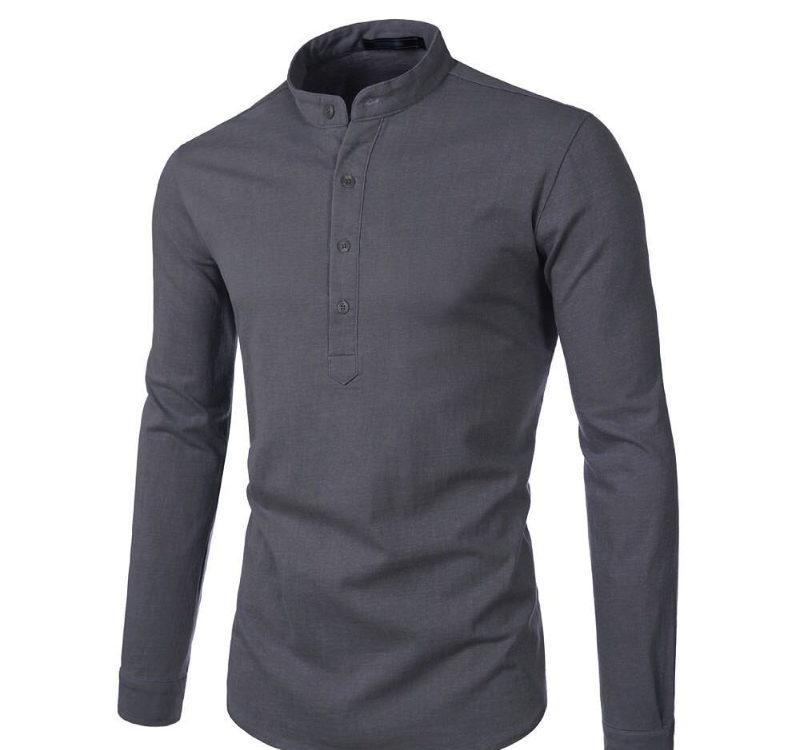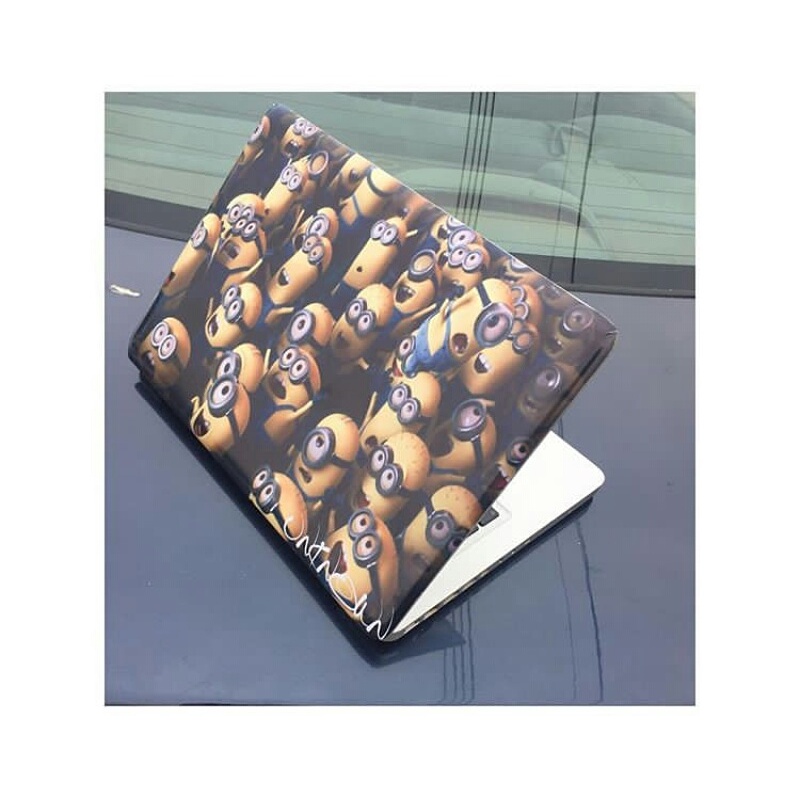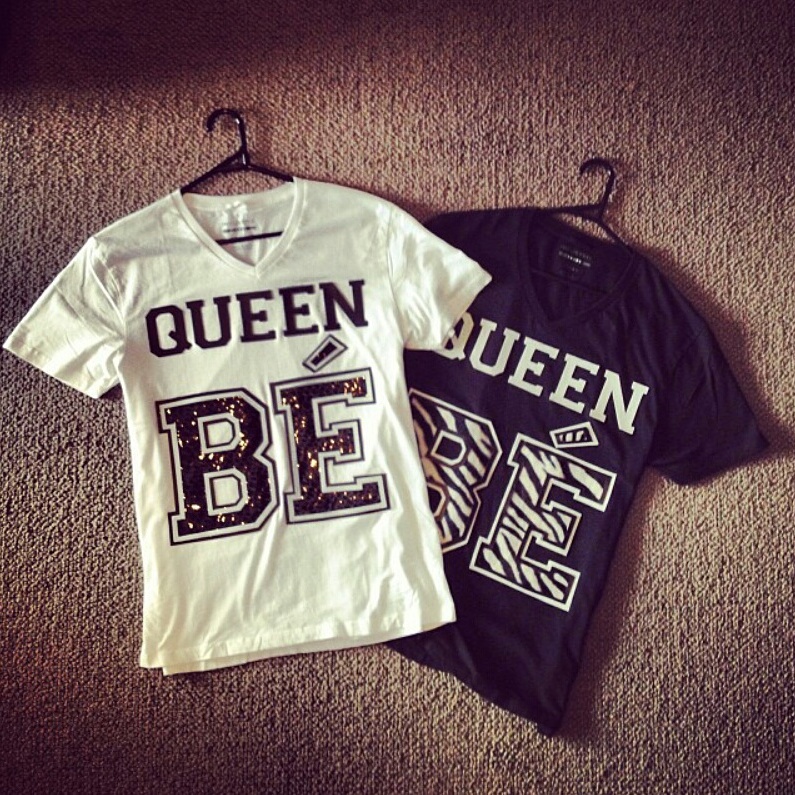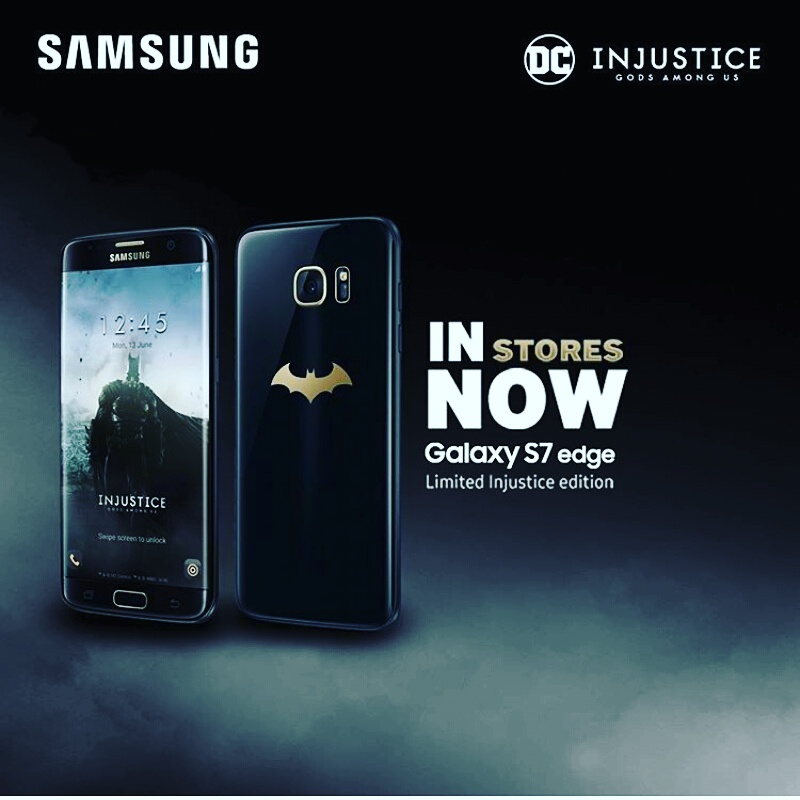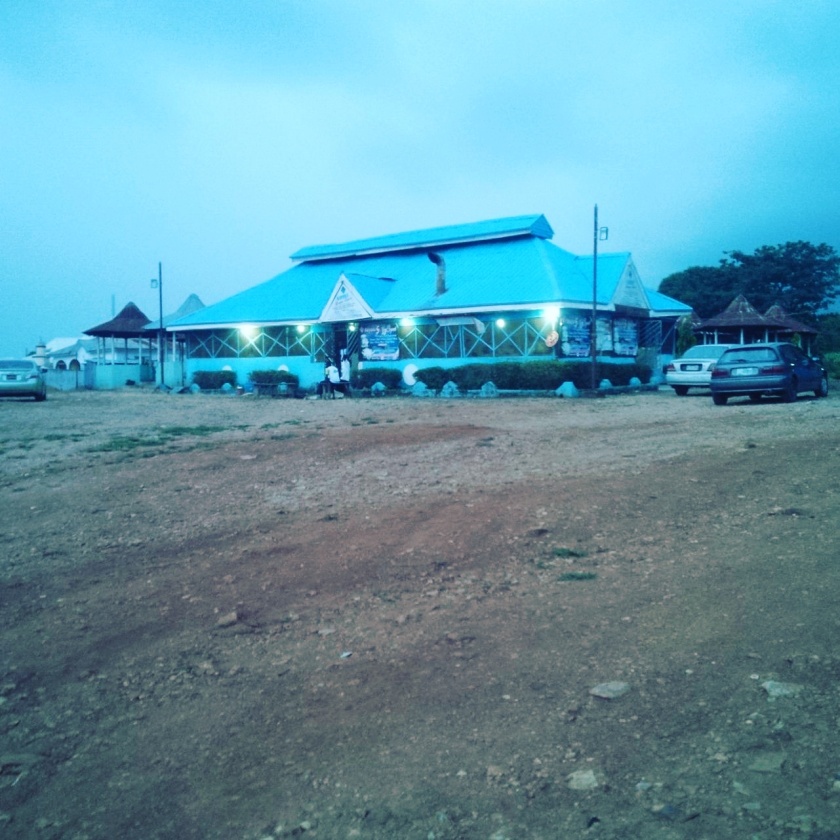Growing Up in the Kennedy Family
Rose Fitzgerald Kennedy, who was a very disciplined and organized woman, made the following entry on a notecard, when her second child was born:
John Fitzgerald Kennedy
Born Brookline, Mass. (83 Beals Street) May 29, 1917
In all, Rose Fitzgerald Kennedy would have nine children, four boys and five girls. She kept notecards for each of them in a small wooden file box and made a point of writing down everything from a doctor’s visit to the shoe size they had at a particular age. John Fitzgerald Kennedy was named in honor of Rose’s father, John Francis Fitzgerald, the Boston Mayor popularly known as Honey Fitz. Before long, family and friends called this small blue-eyed baby, Jack. Jack was not a very healthy baby, and Rose recorded on his notecard the childhood diseases from which he suffered, such as: “whooping cough, measles, chicken pox.” On February 20, 1920 when Jack was not yet three years old, he became sick with scarlet fever, a highly contagious and then potentially life-threatening disease. His father, Joseph Patrick Kennedy, was terrified that little Jack would die. Mr. Kennedy went to the hospital every day to be by his son’s side, and about a month later Jack took a turn for the better and recovered. But Jack was never very healthy, and because he was always suffering from one ailment or another his family used to joke about the great risk a mosquito took in biting him – with some of his blood the mosquito was almost sure to die!
When Jack was three, the Kennedys moved to a new home a few blocks away from their old house in Brookline, a neighborhood just outside of Boston. It was a lovely house with twelve rooms, turreted windows, and a big porch. Full of energy and ambition, Jack’s father worked very hard at becoming a successful businessman. When he was a student at Harvard College and having a difficult time fitting in as an Irish Catholic, he swore to himself he would make a million dollars by the age of 35. There was a lot of prejudice against Irish Catholics in Boston at that time, but Joseph Kennedy was determined to succeed. Jack’s great-grandparents had come from Ireland and managed to provide for their families, despite many hardships. Jack’s grandfathers did even better for themselves, both becoming prominent Boston politicians. Jack, because of all his family had done, could enjoy a very comfortable life. The Kennedys had everything they needed and more.
By the time Jack was eight there were seven children altogether. Jack had an older brother, Joe; four sisters, Rosemary, Kathleen, Eunice, and Patricia; and a younger brother, Robert. Jean and Teddy hadn’t been born yet. Nannies and housekeepers helped Rose run the household.
At the end of the school year, the Kennedy children would go to their summer home in Hyannis Port on Cape Cod where they enjoyed swimming, sailing, and playing touch football. The Kennedy children played hard, and they enjoyed competing with one another. Joseph Sr. encouraged this competition, especially among the boys. He was a father with very high expectations and wanted the boys to win at sports and everything they tried. As he often said, “When the going gets tough, the tough get going.” But sometimes these competitions went too far. One time when Joe suggested that he and Jack race on their bicycles, they collided head-on. Joe emerged unscathed while Jack had to have twenty-eight stitches. Because Joe was two years older and stronger than Jack, whenever they fought, Jack would usually get the worst of it. Jack was the only sibling who posed any real threat to Joe’s dominant position as the oldest child.
Jack was very popular and had many friends at Choate, a boarding school for adolescent boys in Connecticut. He played tennis, basketball, football, and golf and also enjoyed reading. His friend Lem Billings remembers how unusual it was that Jack had a daily subscription to the New York Times. Jack had a “clever, individualist mind,” his Head Master once noted, though he was not the best student. He did not always work as hard as he could, except in history and English, which were his favorite subjects. “Now Jack,” his father wrote in a letter one day, “I don’t want to give the impression that I am a nagger, for goodness knows I think that is the worse thing any parent can be, and I also feel that you know if I didn’t really feel you had the goods I would be most charitable in my attitude toward your failings. After long experience in sizing up people I definitely know you have the goods and you can go a long way…It is very difficult to make up fundamentals that you have neglected when you were very young, and that is why I am urging you to do the best you can. I am not expecting too much, and I will not be disappointed if you don’t turn out to be a real genius, but I think you can be a really worthwhile citizen with good judgment and understanding.”

Jack graduated from Choate and entered Harvard in 1936, where Joe was already a student. Like his brother Joe, Jack played football. He was not as good an athlete as Joe but he had a lot of determination and perseverance. Unfortunately, one day while playing he ruptured a disk in his spine. Jack never really recovered from this accident and his back continued to bother him for the rest of his life.
The two eldest boys were attractive, agreeable, and intelligent young men and Mr. Kennedy had high hopes for them both. However, it was Joe who had announced to everyone when he was a young boy that he would be the first Catholic to become President. No one doubted him for a moment. Jack, on the other hand, seemed somewhat less ambitious. He was active in student groups and sports and he worked hard in his history and government classes, though his grades remained only average. Late in 1937, Mr. Kennedy was appointed United States Ambassador to England and moved there with his whole family, with the exception of Joe and Jack who were at Harvard. Because of his father’s job, Jack became very interested in European politics and world affairs. After a summer visit to England and other countries in Europe, Jack returned to Harvard more eager to learn about history and government and to keep up with current events.
Joe and Jack frequently received letters from their father in England, who informed them of the latest news regarding the conflicts and tensions that everyone feared would soon blow up into a full-scale war. Adolph Hitler ruled Germany and Benito Mussolini ruled Italy. They both had strong armies and wanted to take land from other countries. On September 1, 1939, Germany invaded Poland and World War II began.
By this time, Jack was a senior at Harvard and decided to write his thesis on why Great Britain was unprepared for war with Germany. It was later published as a book called Why England Slept. In June 1940, Jack graduated from Harvard. His father sent him a cablegram from London: “TWO THINGS I ALWAYS KNEW ABOUT YOU ONE THAT YOU ARE SMART TWO THAT YOU ARE A SWELL GUY LOVE DAD.”
World War II and a Future in Politics
Soon after graduating, both Joe and Jack joined the Navy. Joe was a flyer and sent to Europe, while Jack was made Lieutenant (Lt.) and assigned to the South Pacific as commander of a patrol torpedo boat, the PT-109.
Lt. Kennedy had a crew of twelve men whose mission was to stop Japanese ships from delivering supplies to their soldiers. On the night of August 2, 1943, Lt. Kennedy’s crew patrolled the waters looking for enemy ships to sink. A Japanese destroyer suddenly became visible. But it was traveling at full speed and headed straight at them. Holding the wheel, Lt. Kennedy tried to swerve out of the way, but to no avail. The much larger Japanese warship rammed the PT-109, splitting it in half and killing two of Lt. Kennedy’s men. The others managed to jump off as their boat went up in flames. Lt. Kennedy was slammed hard against the cockpit, once again injuring his weak back. Patrick McMahon, one of his crew members, had horrible burns on his face and hands and was ready to give up. In the darkness, Lt. Kennedy managed to find McMahon and haul him back to where the other survivors were clinging to a piece of the boat that was still afloat. At sunrise, Lt. Kennedy led his men toward a small island several miles away. Despite his own injuries, Lt. Kennedy was able to tow Patrick McMahon ashore, a strap from McMahon’s life jacket clenched between his teeth. Six days later two native islanders found them and went for help, delivering a message Jack had carved into a piece of coconut shell. The next day, the PT-109 crew was rescued. Jack’s brother Joe was not so lucky. He died a year later when his plane blew up during a dangerous mission in Europe.
When he returned home, Jack was awarded the Navy and Marine Corps Medal for his leadership and courage. With the war finally coming to an end, it was time to choose the kind of work he wanted to do. Jack had considered becoming a teacher or a writer, but with Joe’s tragic death suddenly everything changed. After serious discussions with Jack about his future, Joseph Kennedy convinced him that he should run for Congress in Massachusetts’ eleventh congressional district, where he won in 1946. This was the beginning of Jack’s political career. As the years went on, John F. Kennedy, a Democrat, served three terms (six years) in the House of Representatives, and in 1952 he was elected to the US Senate.
Soon after being elected senator, John F. Kennedy, at 36 years of age, married 24 year-old Jacqueline Bouvier, a writer with the Washington Times-Herald. Unfortunately, early on in their marriage, Senator Kennedy’s back started to hurt again and he had two serious operations. While recovering from surgery, he wrote a book about several US Senators who had risked their careers to fight for the things in which they believed. The book, called Profiles in Courage, was awarded the Pulitzer Prize for biography in 1957. That same year, the Kennedys’ first child, Caroline, was born.
John F. Kennedy was becoming a popular politician. In 1956 he was almost picked to run for vice president. Kennedy nonetheless decided that he would run for president in the next election.
He began working very long hours and traveling all around the United States on weekends. On July 13, 1960 the Democratic party nominated him as its candidate for president. Kennedy asked Lyndon B. Johnson, a senator from Texas, to run with him as vice president. In the general election on November 8, 1960, Kennedy defeated the Republican Vice President Richard M. Nixon in a very close race. At the age of 43, Kennedy was the youngest man elected president and the first Catholic. Before his inauguration, his second child, John Jr., was born. His father liked to call him John-John.
John F. Kennedy Becomes The 35th President of the United States
John F. Kennedy was sworn in as the 35th president on January 20, 1961. In his inaugural speech he spoke of the need for all Americans to be active citizens. “Ask not what your country can do for you, ask what you can do for your country,” he said. He also asked the nations of the world to join together to fight what he called the “common enemies of man: tyranny, poverty, disease, and war itself.” President Kennedy, together with his wife and two children, brought a new, youthful spirit to the White House. The Kennedys believed that the White House should be a place to celebrate American history, culture, and achievement. They invited artists, writers, scientists, poets, musicians, actors, and athletes to visit them. Jacqueline Kennedy also shared her husband’s interest in American history. Gathering some of the finest art and furniture the United States had produced, she restored all the rooms in the White House to make it a place that truly reflected America’s history and artistic creativity. Everyone was impressed and appreciated her hard work.
The White House also seemed like a fun place because of the Kennedys’ two young children, Caroline and John-John. There was a pre-school, a swimming pool, and a tree-house outside on the White House lawn. President Kennedy was probably the busiest man in the country, but he still found time to laugh and play with his children.
However, the president also had many worries. One of the things he worried about most was the possibility of nuclear war between the United States and the Soviet Union. He knew that if there was a war, millions of people would die. Since World War II, there had been a lot of anger and suspicion between the two countries but never any shooting between Soviet and American troops. This ‘Cold War’, which was unlike any other war the world had seen, was really a struggle between the Soviet Union’s communist system of government and the United States’ democratic system. Because they distrusted each other, both countries spent enormous amounts of money building nuclear weapons. There were many times when the struggle between the Soviet Union and the United States could have ended in nuclear war, such as in Cuba during the 1962 missile crisis or over the divided city of Berlin.
President Kennedy worked long hours, getting up at seven and not going to bed until eleven or twelve at night, or later. He read six newspapers while he ate breakfast, had meetings with important people throughout the day, and read reports from his advisers. He wanted to make sure that he made the best decisions for his country. “I am asking each of you to be new pioneers in that New Frontier,” he said. The New Frontier was not a place but a way of thinking and acting. President Kennedy wanted the United States to move forward into the future with new discoveries in science and improvements in education, employment and other fields. He wanted democracy and freedom for the whole world.
One of the first things President Kennedy did was to create the Peace Corps. Through this program, which still exists today, Americans can volunteer to work anywhere in the world where assistance is needed. They can help in areas such as education, farming, health care, and construction. Many young men and women have served as Peace Corps volunteers and have won the respect of people throughout the world.
President Kennedy was also eager for the United States to lead the way in exploring space. The Soviet Union was ahead of the United States in its space program and President Kennedy was determined to catch up. He said, “No nation which expects to be the leader of other nations can expect to stay behind in this race for space.” Kennedy was the first president to ask Congress to approve more than 22 billion dollars for Project Apollo, which had the goal of landing an American man on the moon before the end of the decade.
President Kennedy had to deal with many serious problems here in the United States. The biggest problem of all was racial discrimination. The US Supreme Court had ruled in 1954 that segregation in public schools would no longer be permitted. Black and white children, the decision mandated, should go to school together. This was now the law of the land. However, there were many schools, especially in southern states, that did not obey this law. There was also racial segregation on buses, in restaurants, movie theaters, and other public places.
Thousands of Americans joined together, people of all races and backgrounds, to protest peacefully this injustice.
Martin Luther King Jr. was one of the famous leaders of the movement for civil rights. Many civil rights leaders didn’t think President Kennedy was supportive enough of their efforts. The President believed that holding public protests would only anger many white people and make it even more difficult to convince the members of Congress who didn’t agree with him to pass civil rights laws. By June 11, 1963, however, President Kennedy decided that the time had come to take stronger action to help the civil rights struggle. He proposed a new Civil Rights bill to the Congress, and he went on television asking Americans to end racism. “One hundred years of delay have passed since President Lincoln freed the slaves, yet their heirs, their grandsons, are not fully free,” he said. “This Nation was founded by men of many nations and backgrounds…[and] on the principle that all men are created equal.” President Kennedy made it clear that all Americans, regardless of their skin color, should enjoy a good and happy life in the United States.
The President is Shot
On November 21, 1963, President Kennedy flew to Texas to give several political speeches. The next day, as his car drove slowly past cheering crowds in Dallas, shots rang out. Kennedy was seriously wounded and died a short time later. Within a few hours of the shooting, police arrested Lee Harvey Oswald and charged him with the murder. On November 24, another man, Jack Ruby, shot and killed Oswald, thus silencing the only person who could have offered more information about this tragic event. The Warren Commission was organized to investigate the assassination and to clarify the many questions which remained.
The Legacy of John F. Kennedy
President Kennedy’s death caused enormous sadness and grief among all Americans. Most people still remember exactly where they were and what they were doing when they heard the news. Hundreds of thousands of people gathered in Washington for the President’s funeral, and millions throughout the world watched it on television.
As the years have gone by and other presidents have written their chapters in history, John Kennedy’s brief time in office stands out in people’s memories for his leadership, personality, and accomplishments. Many respect his coolness when faced with difficult decisions–like what to do about Soviet missiles in Cuba in 1962. Others admire his ability to inspire people with his eloquent speeches. Still others think his compassion and his willingness to fight for new government programs to help the poor, the elderly and the ill were most important. Like all leaders, John Kennedy made mistakes, but he was always optimistic about the future. He believed that people could solve their common problems if they put their country’s interests first and worked together.
DEMOCRATIC ACCEPTANCE SPEECH
1960 Democratic National Convention, 15 July 1960
Accession Number: TNC:191-E5 (excerpt)
Transcript
Governor Stevenson, Senator Johnson, Mr. Butler, Senator Symington, Senator Humphrey, Speaker Rayburn, Fellow Democrats, I want to express my thanks to Governor Stevenson for his generous and heart-warming introduction.
It was my great honor to place his name in nomination at the 1956 Democratic Convention, and I am delighted to have his support and his counsel and his advice in the coming months ahead.
With a deep sense of duty and high resolve, I accept your nomination.
I accept it with a full and grateful heart–without reservation– and with only one obligation–the obligation to devote every effort of body, mind and spirit to lead our Party back to victory and our Nation back to greatness.
I am grateful, too, that you have provided me with such an eloquent statement of our Party’s platform. Pledges which are made so eloquently are made to be kept. “The Rights of Man”–the civil and economic rights essential to the human dignity of all men–are indeed our goal and our first principles. This is a Platform on which I can run with enthusiasm and conviction.
And I am grateful, finally, that I can rely in the coming months on so many others–on a distinguished running-mate who brings unity to our ticket and strength to our Platform, Lyndon Johnson–on one of the most articulate statesmen of our time, Adlai Stevenson–on a great spokesman for our needs as a Nation and a people, Stuart Symington–and on that fighting campaigner whose support I welcome, President Harry S. Truman– on my traveling companion in Wisconsin and West Virginia, Senator Hubert Humphrey. On Paul Butler, our devoted and courageous Chairman.
I feel a lot safer now that they are on my side again. And I am proud of the contrast with our Republican competitors. For their ranks are apparently so thin that not one challenger has come forth with both the competence and the courage to make theirs an open convention.
I am fully aware of the fact that the Democratic Party, by nominating someone of my faith, has taken on what many regard as a new and hazardous risk–new, at least since 1928. But I look at it this way: the Democratic Party has once again placed its confidence in the American people, and in their ability to render a free, fair judgment. And you have, at the same time, placed your confidence in me, and in my ability to render a free, fair judgment–to uphold the Constitution and my oath of office–and to reject any kind of religious pressure or obligation that might directly or indirectly interfere with my conduct of the Presidency in the national interest. My record of fourteen years supporting public education–supporting complete separation of church and state–and resisting pressure from any source on any issue should be clear by now to everyone.
I hope that no American, considering the really critical issues facing this country, will waste his franchise by voting either for me or against me solely on account of my religious affiliation. It is not relevant. I want to stress, what some other political or religious leader may have said on this subject. It is not relevant what abuses may have existed in other countries or in other times. It is not relevant what pressures, if any, might conceivably be brought to bear on me. I am telling you now what you are entitled to know: that my decisions on any public policy will be my own–as an American, a Democrat and a free man.
Under any circumstances, however, the victory we seek in November will not be easy. We all know that in our hearts. We recognize the power of the forces that will be aligned against us. We know they will invoke the name of Abraham Lincoln on behalf of their candidate–despite the fact that the political career of their candidate has often seemed to show charity toward none and malice for all.
We know that it will not be easy to campaign against a man who has spoken or voted on every known side of every known issue. Mr. Nixon may feel it is his turn now, after the New Deal and the Fair Deal–but before he deals, someone had better cut the cards.
That “someone” may be the millions of Americans who voted for President Eisenhower but balk at his would be, self-appointed successor. For just as historians tell us that Richard I was not fit to fill the shoes of bold Henry II–and that Richard Cromwell was not fit to wear the mantle of his uncle–they might add in future years that Richard Nixon did not measure to the footsteps of Dwight D. Eisenhower.
Perhaps he could carry on the party policies–the policies of Nixon, Benson, Dirksen and Goldwater. But this Nation cannot afford such a luxury. Perhaps we could better afford a Coolidge following Harding. And perhaps we could afford a Pierce following Fillmore. But after Buchanan this nation needed a Lincoln–after Taft we needed a Wilson– after Hoover we needed Franklin Roosevelt. . . . And after eight years of drugged and fitful sleep, this nation needs strong, creative Democratic leadership in the White House.
But we are not merely running against Mr. Nixon. Our task is not merely one of itemizing Republican failures. Nor is that wholly necessary. For the families forced from the farm will know how to vote without our telling them. The unemployed miners and textile workers will know how to vote. The old people without medical care–the families without a decent home–the parents of children without adequate food or schools–they all know that it’s time for a change.
But I think the American people expect more from us than cries of indignation and attack. The times are too grave, the challenge too urgent, and the stakes too high–to permit the customary passions of political debate. We are not here to curse the darkness, but to light the candle that can guide us through that darkness to a safe and sane future. As Winston Churchill said on taking office some twenty years ago: if we open a quarrel between the present and the past, we shall be in danger of losing the future.
Today our concern must be with that future. For the world is changing. The old era is ending. The old ways will not do.
Abroad, the balance of power is shifting. There are new and more terrible weapons–new and uncertain nations–new pressures of population and deprivation. One-third of the world, it has been said, may be free- -but one-third is the victim of cruel repression–and the other one- third is rocked by the pangs of poverty, hunger and envy. More energy is released by the awakening of these new nations than by the fission of the atom itself.
Meanwhile, Communist influence has penetrated further into Asia, stood astride the Middle East and now festers some ninety miles off the coast of Florida. Friends have slipped into neutrality–and neutrals into hostility. As our keynoter reminded us, the President who began his career by going to Korea ends it by staying away from Japan.
The world has been close to war before–but now man, who has survived all previous threats to his existence, has taken into his mortal hands the power to exterminate the entire species some seven times over.
Here at home, the changing face of the future is equally revolutionary. The New Deal and the Fair Deal were bold measures for their generations–but this is a new generation.
A technological revolution on the farm has led to an output explosion–but we have not yet learned to harness that explosion usefully, while protecting our farmers’ right to full parity income.
An urban population explosion has overcrowded our schools, cluttered up our suburbs, and increased the squalor of our slums.
A peaceful revolution for human rights–demanding an end to racial discrimination in all parts of our community life–has strained at the leashes imposed by timid executive leadership.
A medical revolution has extended the life of our elder citizens without providing the dignity and security those later years deserve. And a revolution of automation finds machines replacing men in the mines and mills of America, without replacing their incomes or their training or their needs to pay the family doctor, grocer and landlord.
There has also been a change–a slippage–in our intellectual and moral strength. Seven lean years of drouth and famine have withered a field of ideas. Blight has descended on our regulatory agencies–and a dry rot, beginning in Washington, is seeping into every corner of America–in the payola mentality, the expense account way of life, the confusion between what is legal and what is right. Too many Americans have lost their way, their will and their sense of historic purpose.
It is a time, in short, for a new generation of leadership–new men to cope with new problems and new opportunities.
All over the world, particularly in the newer nations, young men are coming to power–men who are not bound by the traditions of the past–men who are not blinded by the old fears and hates and rivalries– young men who can cast off the old slogans and delusions and suspicions.
The Republican nominee-to-be, of course, is also a young man. But his approach is as old as McKinley. His party is the party of the past. His speeches are generalities from Poor Richard’s Almanac. Their platform, made up of left-over Democratic planks, has the courage of our old convictions. Their pledge is a pledge to the status quo–and today there can be no status quo.
For I stand tonight facing west on what was once the last frontier. From the lands that stretch three thousand miles behind me, the pioneers of old gave up their safety, their comfort and sometimes their lives to build a new world here in the West. They were not the captives of their own doubts, the prisoners of their own price tags. Their motto was not “every man for himself”–but “all for the common cause.” They were determined to make that new world strong and free, to overcome its hazards and its hardships, to conquer the enemies that threatened from without and within.
Today some would say that those struggles are all over–that all the horizons have been explored–that all the battles have been won– that there is no longer an American frontier.
But I trust that no one in this vast assemblage will agree with those sentiments. For the problems are not all solved and the battles are not all won–and we stand today on the edge of a New Frontier–the frontier of the 1960’s–a frontier of unknown opportunities and perils– a frontier of unfulfilled hopes and threats.
Woodrow Wilson’s New Freedom promised our nation a new political and economic framework. Franklin Roosevelt’s New Deal promised security and succor to those in need. But the New Frontier of which I speak is not a set of promises–it is a set of challenges. It sums up not what I intend to offer the American people, but what I intend to ask of them. It appeals to their pride, not to their pocketbook–it holds out the promise of more sacrifice instead of more security.
But I tell you the New Frontier is here, whether we seek it or not. Beyond that frontier are the uncharted areas of science and space, unsolved problems of peace and war, unconquered pockets of ignorance and prejudice, unanswered questions of poverty and surplus. It would be easier to shrink back from that frontier, to look to the safe mediocrity of the past, to be lulled by good intentions and high rhetoric–and those who prefer that course should not cast their votes for me, regardless of party.
But I believe the times demand new invention, innovation, imagination, decision. I am asking each of you to be pioneers on that New Frontier. My call is to the young in heart, regardless of age–to all who respond to the Scriptural call: “Be strong and of a good courage; be not afraid, neither be thou dismayed.”
For courage–not complacency–is our need today–leadership–not salesmanship. And the only valid test of leadership is the ability to lead, and lead vigorously. A tired nation, said David Lloyd George, is a Tory nation–and the United States today cannot afford to be either tired or Tory.
There may be those who wish to hear more–more promises to this group or that–more harsh rhetoric about the men in the Kremlin–more assurances of a golden future, where taxes are always low and subsidies ever high. But my promises are in the platform you have adopted–our ends will not be won by rhetoric and we can have faith in the future only if we have faith in ourselves.
For the harsh facts of the matter are that we stand on this frontier at a turning-point in history. We must prove all over again whether this nation–or any nation so conceived–can long endure–whether our society–with its freedom of choice, its breadth of opportunity, its range of alternatives–can compete with the single-minded advance of the Communist system.
Can a nation organized and governed such as ours endure? That is the real question. Have we the nerve and the will? Can we carry through in an age where we will witness not only new breakthroughs in weapons of destruction–but also a race for mastery of the sky and the rain, the ocean and the tides, the far side of space and the inside of men’s minds?
Are we up to the task–are we equal to the challenge? Are we willing to match the Russian sacrifice of the present for the future–or must we sacrifice our future in order to enjoy the present?
That is the question of the New Frontier. That is the choice our nation must make–a choice that lies not merely between two men or two parties, but between the public interest and private comfort–between national greatness and national decline–between the fresh air of progress and the stale, dank atmosphere of “normalcy”–between determined dedication and creeping mediocrity.
All mankind waits upon our decision. A whole world looks to see what we will do. We cannot fail their trust, we cannot fail to try.
It has been a long road from that first snowy day in New Hampshire to this crowded convention city. Now begins another long journey, taking me into your cities and homes all over America. Give me your help, your hand, your voice, your vote. Recall with me the words of Isaiah: “They that wait upon the Lord shall renew their strength; they shall mount up with wings as eagles; they shall run and not be weary.”
As we face the coming challenge, we too, shall wait upon the Lord, and ask that he renew our strength. Then shall we be equal to the test. Then we shall not be weary. And then we shall prevail.
Thank you.
INAUGRAL ADDRESS
Transcript
Vice President Johnson, Mr. Speaker, Mr. Chief Justice, President Eisenhower, Vice President Nixon, President Truman, Reverend Clergy, fellow citizens:
We observe today not a victory of party but a celebration of freedom–symbolizing an end as well as a beginning–signifying renewal as well as change. For I have sworn before you and Almighty God the same solemn oath our forbears prescribed nearly a century and three-quarters ago.
The world is very different now. For man holds in his mortal hands the power to abolish all forms of human poverty and all forms of human life. And yet the same revolutionary beliefs for which our forebears fought are still at issue around the globe–the belief that the rights of man come not from the generosity of the state but from the hand of God.
We dare not forget today that we are the heirs of that first revolution. Let the word go forth from this time and place, to friend and foe alike, that the torch has been passed to a new generation of Americans–born in this century, tempered by war, disciplined by a hard and bitter peace, proud of our ancient heritage–and unwilling to witness or permit the slow undoing of those human rights to which this nation has always been committed, and to which we are committed today at home and around the world.
Let every nation know, whether it wishes us well or ill, that we shall pay any price, bear any burden, meet any hardship, support any friend, oppose any foe to assure the survival and the success of liberty.
This much we pledge–and more.
To those old allies whose cultural and spiritual origins we share, we pledge the loyalty of faithful friends. United there is little we cannot do in a host of cooperative ventures. Divided there is little we can do–for we dare not meet a powerful challenge at odds and split asunder.
To those new states whom we welcome to the ranks of the free, we pledge our word that one form of colonial control shall not have passed away merely to be replaced by a far more iron tyranny. We shall not always expect to find them supporting our view. But we shall always hope to find them strongly supporting their own freedom–and to remember that, in the past, those who foolishly sought power by riding the back of the tiger ended up inside.
To those people in the huts and villages of half the globe struggling to break the bonds of mass misery, we pledge our best efforts to help them help themselves, for whatever period is required–not because the communists may be doing it, not because we seek their votes, but because it is right. If a free society cannot help the many who are poor, it cannot save the few who are rich.
To our sister republics south of our border, we offer a special pledge–to convert our good words into good deeds–in a new alliance for progress–to assist free men and free governments in casting off the chains of poverty. But this peaceful revolution of hope cannot become the prey of hostile powers. Let all our neighbors know that we shall join with them to oppose aggression or subversion anywhere in the Americas. And let every other power know that this Hemisphere intends to remain the master of its own house.
To that world assembly of sovereign states, the United Nations, our last best hope in an age where the instruments of war have far outpaced the instruments of peace, we renew our pledge of support–to prevent it from becoming merely a forum for invective–to strengthen its shield of the new and the weak–and to enlarge the area in which its writ may run.
Finally, to those nations who would make themselves our adversary, we offer not a pledge but a request: that both sides begin anew the quest for peace, before the dark powers of destruction unleashed by science engulf all humanity in planned or accidental self-destruction.
We dare not tempt them with weakness. For only when our arms are sufficient beyond doubt can we be certain beyond doubt that they will never be employed.
But neither can two great and powerful groups of nations take comfort from our present course–both sides overburdened by the cost of modern weapons, both rightly alarmed by the steady spread of the deadly atom, yet both racing to alter that uncertain balance of terror that stays the hand of mankind’s final war.
So let us begin anew–remembering on both sides that civility is not a sign of weakness, and sincerity is always subject to proof. Let us never negotiate out of fear. But let us never fear to negotiate.
Let both sides explore what problems unite us instead of belaboring those problems which divide us.
Let both sides, for the first time, formulate serious and precise proposals for the inspection and control of arms–and bring the absolute power to destroy other nations under the absolute control of all nations.
Let both sides seek to invoke the wonders of science instead of its terrors. Together let us explore the stars, conquer the deserts, eradicate disease, tap the ocean depths and encourage the arts and commerce.
Let both sides unite to heed in all corners of the earth the command of Isaiah–to “undo the heavy burdens . . . (and) let the oppressed go free.”
And if a beachhead of cooperation may push back the jungle of suspicion, let both sides join in creating a new endeavor, not a new balance of power, but a new world of law, where the strong are just and the weak secure and the peace preserved.
All this will not be finished in the first one hundred days. Nor will it be finished in the first one thousand days, nor in the life of this Administration, nor even perhaps in our lifetime on this planet. But let us begin.
In your hands, my fellow citizens, more than mine, will rest the final success or failure of our course. Since this country was founded, each generation of Americans has been summoned to give testimony to its national loyalty. The graves of young Americans who answered the call to service surround the globe.
Now the trumpet summons us again–not as a call to bear arms, though arms we need–not as a call to battle, though embattled we are– but a call to bear the burden of a long twilight struggle, year in and year out, “rejoicing in hope, patient in tribulation”–a struggle against the common enemies of man: tyranny, poverty, disease and war itself.
Can we forge against these enemies a grand and global alliance, North and South, East and West, that can assure a more fruitful life for all mankind? Will you join in that historic effort?
In the long history of the world, only a few generations have been granted the role of defending freedom in its hour of maximum danger. I do not shrink from this responsibility–I welcome it. I do not believe that any of us would exchange places with any other people or any other generation. The energy, the faith, the devotion which we bring to this endeavor will light our country and all who serve it–and the glow from that fire can truly light the world.
And so, my fellow Americans: ask not what your country can do for you–ask what you can do for your country.
My fellow citizens of the world: ask not what America will do for you, but what together we can do for the freedom of man.
Finally, whether you are citizens of America or citizens of the world, ask of us here the same high standards of strength and sacrifice which we ask of you. With a good conscience our only sure reward, with history the final judge of our deeds, let us go forth to lead the land we love, asking His blessing and His help, but knowing that here on earth God’s work must truly be our own.











